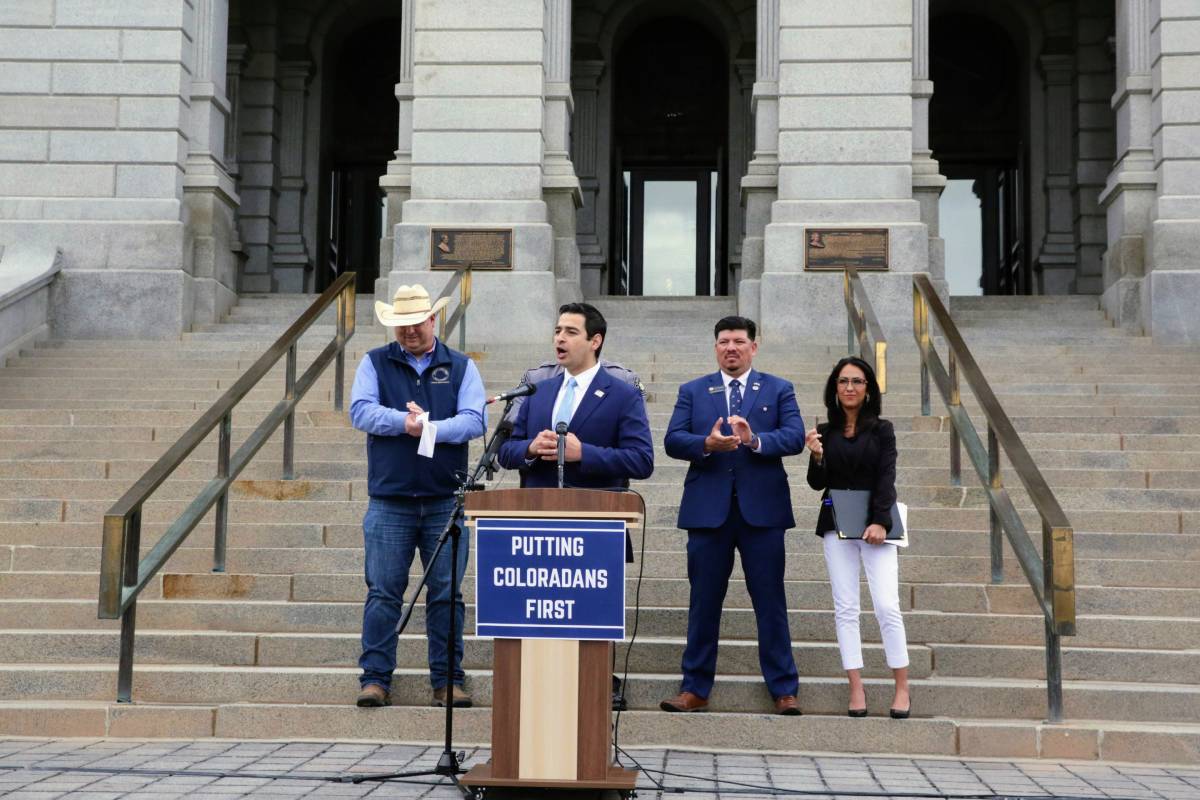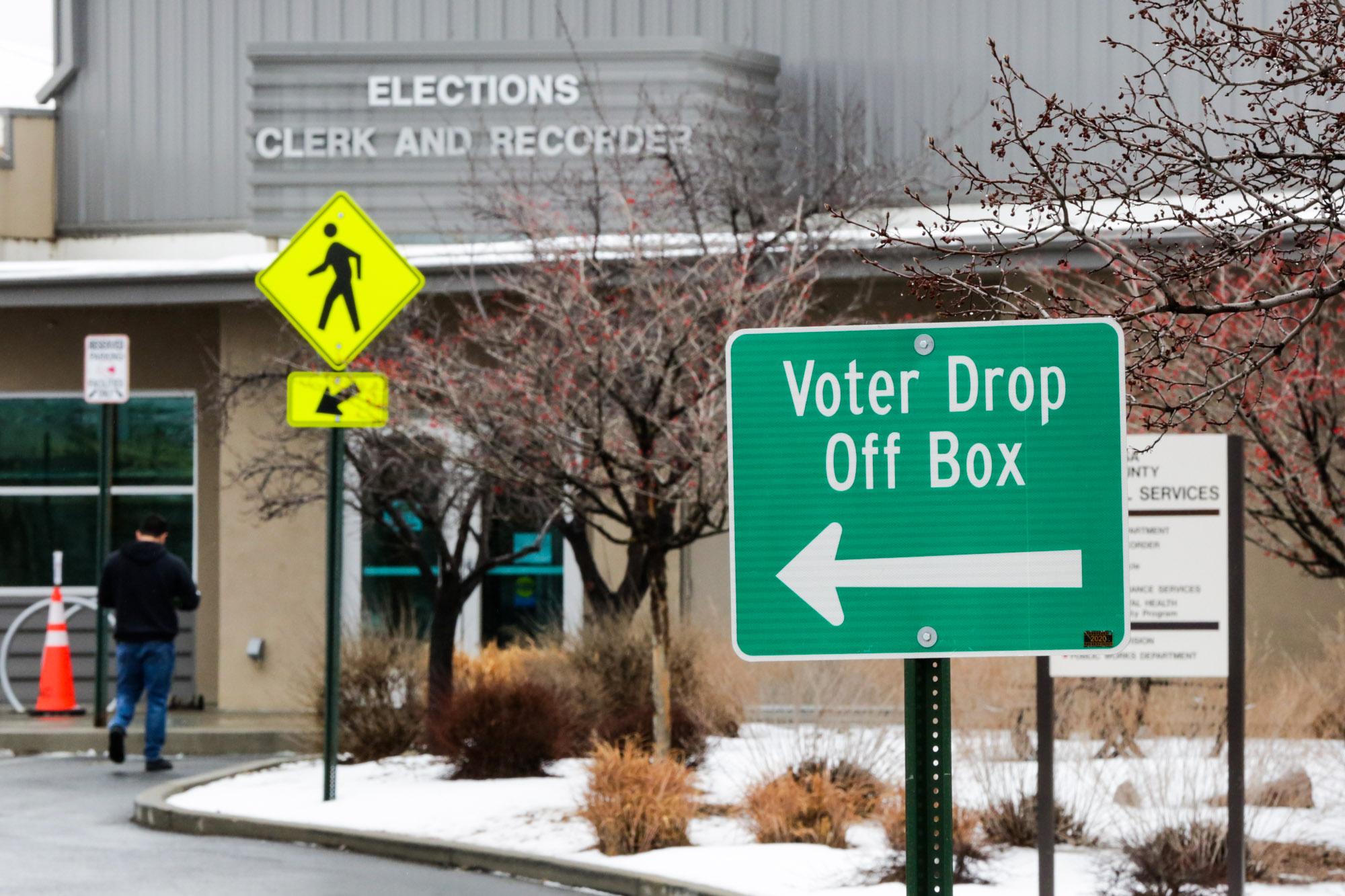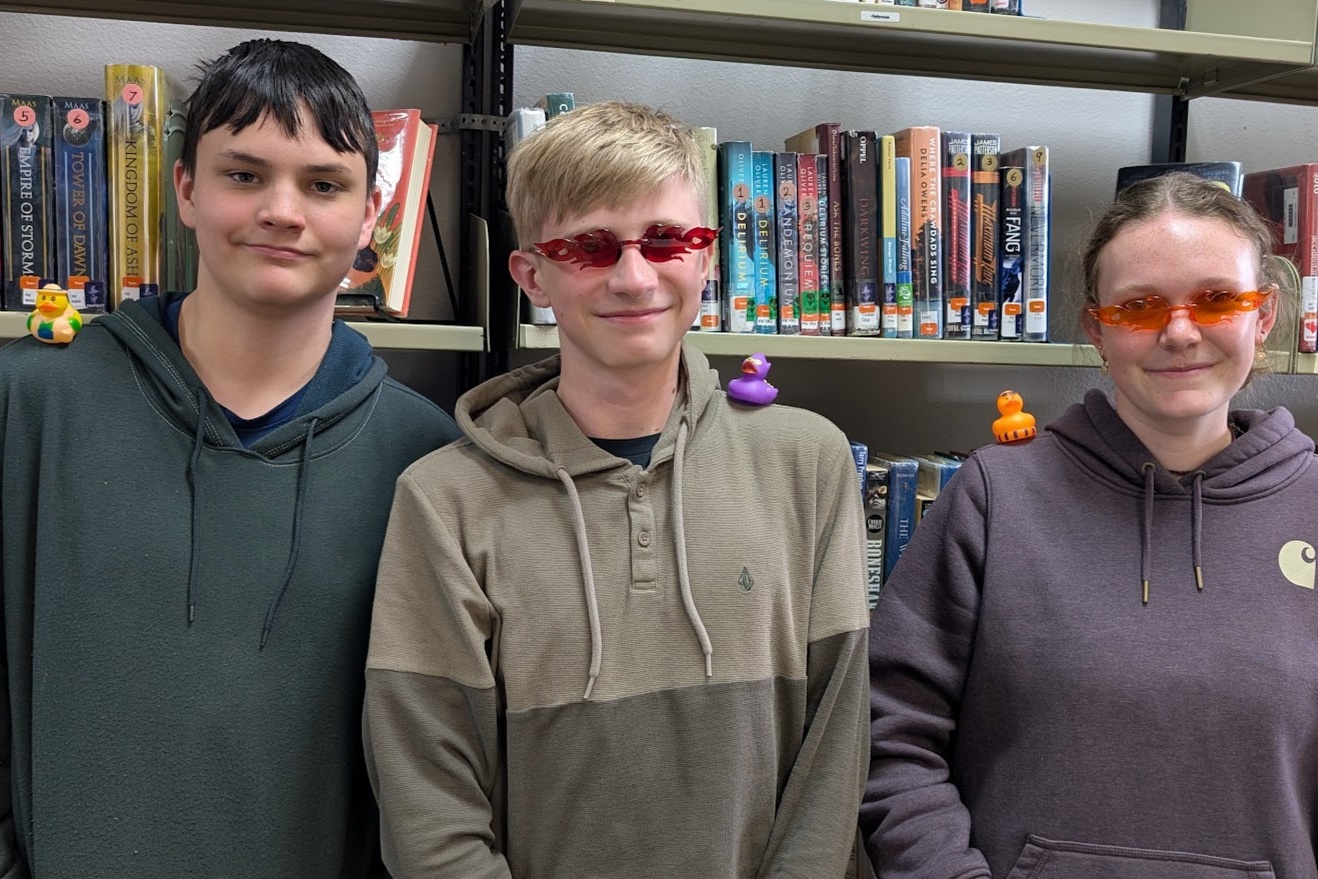
By a stroke of luck, Kyler, 13, started reading.
His older brother was playing video games 24/7 and wouldn’t let him play, so Kyler picked up a book. It changed his world. Now, he loves devouring a good mystery or thriller.
“Just the feeling that something isn't real, but the writer makes it feel like it's also happening to you. Something about that just always gripped me.”
When he’s not moving irrigation lines or cutting hay, the Dolores teen sneaks in a few chapters. Sometimes in the middle of the night, too, if it’s a really good book.
“It’ll keep me up and make me want to finish it.”
Kyler is just one of several teens CPR interviewed who are bucking the trend of teens reading less.
College professors report that over the past decade or two, they’ve seen a dramatic decline in the expansiveness of the vocabulary of students as well as a reduced ability to analyze complex concepts. The Long-Term Trend report, a national assessment, found just 14 percent of 13-year-olds read for fun on their own.
Some teachers are assigning fewer full-length books and instead assigning shorter excerpts and passages. The National Council of Teachers of English said so in a 2022 statement. “The time has come to decenter book reading and essay writing” as the pinnacles of English language arts education.
But some teens don’t buy it
Alivia, 16, is skeptical of the notion that teens are reading less. She doesn’t see evidence of it in her Poudre High School library, “the best library in the district.”
“I have seen so many kids love to read,” she said. “Just today I've talked with kids about their favorite books in my classes. And I think that overall kids just really love to read and love to see those stories and feel those stories.”
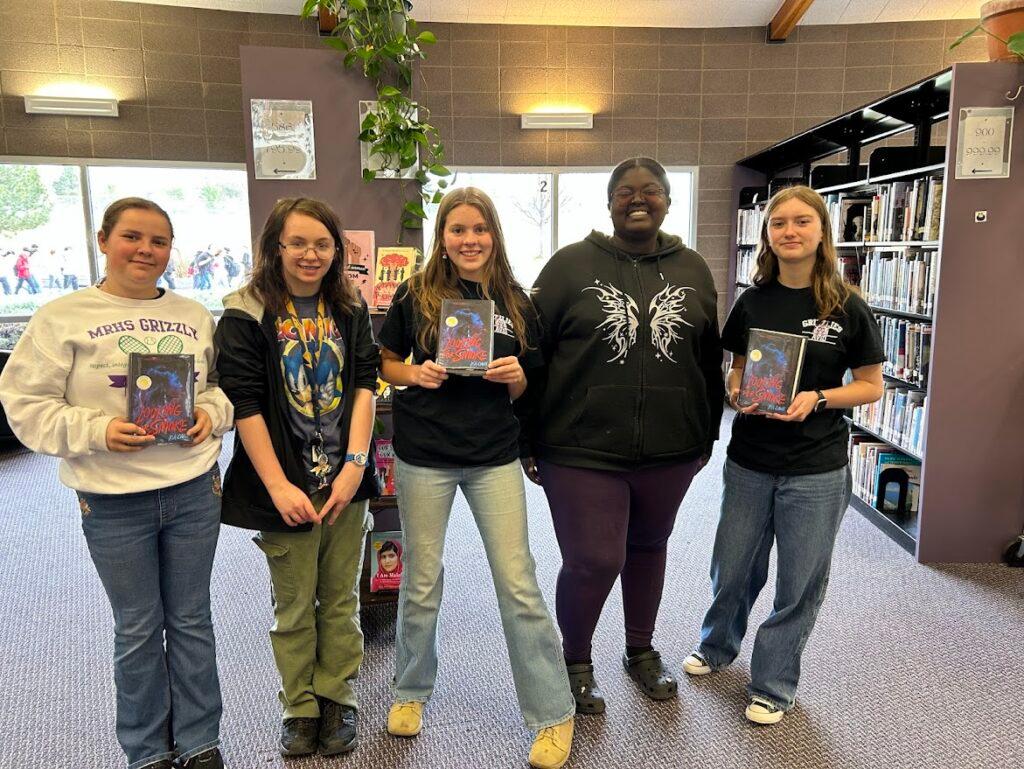
The bibliophile does acknowledge that the degree to which she loves books is “a little bit extreme, but I would say the vast majority of us actually like books a lot more than you might guess by just talking to someone on the street. You might not see as much as we see every day.”
Tristan, 15, from Dolores would like to disagree with the idea that teens aren’t reading as much. But he said in his farming community in southwest Colorado, a lot of kids are into sports and have to spend a lot of time working on farms and ranches.
“But we still come check out books. And we can still be entertained by them, whether that be by friends bringing 'em to books or parents or teachers, sometimes forcefully, sometimes not.”
Alivia credits her love of reading to her fourth-grade teacher Mr. Corcoran. Because she found the book in her reading group boring, he let her also read a book from another group called “The Missing.”
It was one of an eight-book series telling the story of famous children from history stolen by futuristic time travelers. She was hooked.
“It exposed me to something new and opened this kind of whole new world of reading to me,” she said. “So that was probably the first book that really gripped me, and I just loved it forever. I finished the series all the way into fifth grade.”
Tristan attributes his love of reading to his mom who had a ‘perfect, mint condition' Harry Potter collection, and his fifth and sixth-grade teachers who said “I have to read, no matter what I do.” He also trades sleeping for reading in the middle of the night.
“Even though I’m not allowed to, don’t tell my parents.”
Tristan wishes there were more kids who wanted to talk about books.
“It's just sometimes not a huge part of our lives, even though we kind of want it to be, certain friend groups will talk more about books than others, but overall it is just not a big part, sadly.”
That’s one of the things he loved about the Colorado Blue Spruce Award. He and Kyler were part of the “Duck ‘O Tears” book group at Dolores High, which nominated a book and then debated with other teams from around the state.
He likes realistic nonfiction and realistic science fiction.
All the kids know that feeling book lovers know so well of closing a book after the final page and missing the characters.
“I don't let it (the feeling) quench. And I just go straight back to that book if I can,” said Tristan. He re-reads it.
Words, words, words
The longest word Kyler has ever learned from reading, though admits it's hard to pronounce, is pneumonoultramicroscopicsilicovolcanoconiosis, a word that refers to a lung disease contracted from the inhalation of very fine silica particles. As for Tristan, on the spot, he can’t think of a word he’s picked up from reading.
“I don't think I can think of a word that I've learned as I am pretty advanced when it comes to vocabulary.”
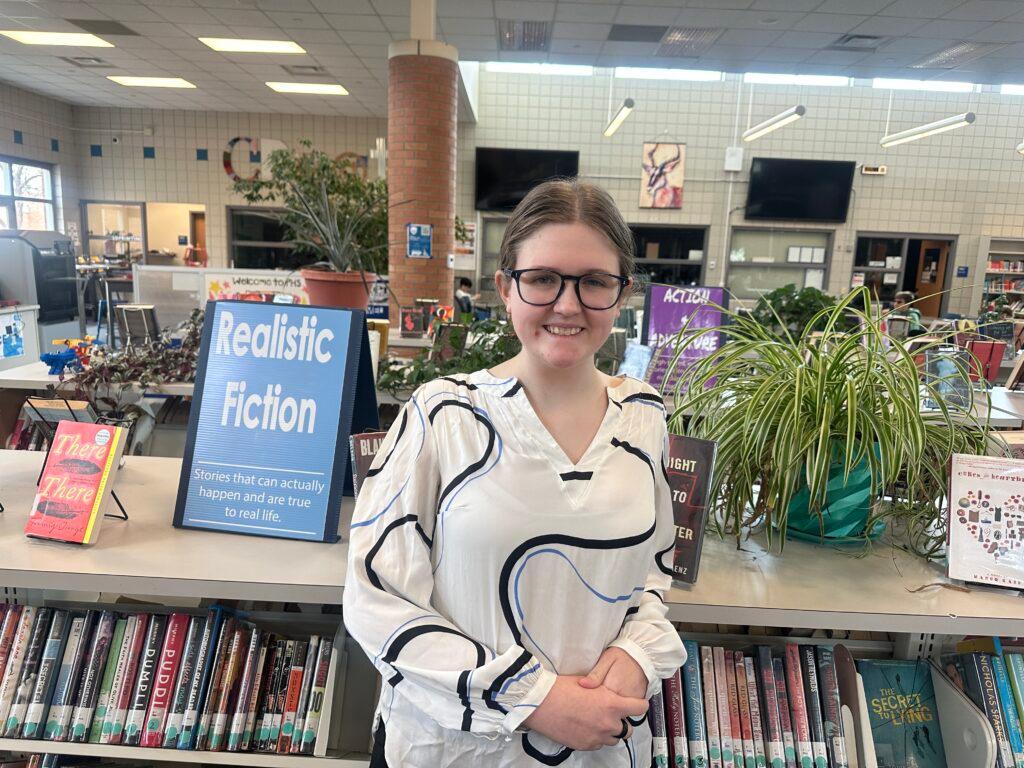
One of Alivia’s favorite things is whenever she sees a concept or word in a book and hears about it in real life later on. In fact, the genius class president in the book she just read, “Wren Martin Ruins it All,” says things like “that was a rather laissez-faire situation.” She had no idea what that meant and kept on reading.
“Then two weeks later, I'm sitting in AP macroeconomics and my teacher says ‘laissez-faire capitalism.’ And I go, ‘Whoa, I've heard that word before.’ I just love it when that happens!”
Reading to escape and to understand others
Reading helps the three teens cope with being teenagers in 2025.
“It kind of opens up our imagination to make us feel young again and make us wonder and just feel that maybe the future isn't completely doomed,” said Tristan.
Asked if he feels a bit glum about the future, Tristan responds:
“I’m anxious about it. I’m a teenager. It’s kind of our thing.”
Reading helps Kyler be grateful for the present moment.
“It makes me cope because in the books I read, a lot of the characters, they will die,” he said. “And most of the time it'll be at a young age. And that just makes me realize how short our life could be at any given moment.”
Alivia loves that books allow her to dip into the lives of others who may be very different from her. She describes the “windows, mirrors and sliding glass doors” concept of books.
“A window is something that you can see someone else's experience. A mirror is something where you see your own experience. And a sliding glass door is where you can really step into that experience and feel it and understand where they're coming from on a deeper level.”
Alivia stepped through a sliding glass door in the case of a recent book her school book club nominated for the Colorado Blue Spruce Award, called “Wren Martin Ruins It All.” It’s a romantic comedy about Wren Martin, a student body president who is asexual, hates school dances but finds himself in charge of the school's Valentine’s Day dance. In the process he develops a crush on another boy and has other relationship drama.
“There are just so many levels to it that we've never really seen in a novel before. So that experience really comes through and you understand it,” she said.
At this time of year, most of Alivia’s reading now is AP textbooks. But her favorite place to read for pleasure is on trains when her family is traveling.
“I just love sitting and reading on the train while the scenery's going by,” she said. “It's one of my favorite places.”
What do the kids think about book bans in school?
Kyler is impartial about book bans. Tristan doesn’t support book bans but believes there should be limitations for certain age groups. The Duck ‘O Tears book club recommended, for example, a content warning for the popular Greek mythology fantasy novel “Lies We Sing to the Sea” for violence, murder, non-graphic sexual assault and suicide.
“Certain information can be harmful to a young mind,” Tristan said. “But I believe complete…bans should not be allowed as that is … restricting our rights.”
Alivia has so many strong opinions on book bans she doesn’t know if she should even begin talking about it. But for starters, she said it’s important teens get to see people like themselves and people who are different from themselves in our libraries and books.
“And to put a pause on that, to not let us see those experiences make us feel more isolated and that we're the only ones going through that, which can only make it harder to cope, (and) can lessen our patience for others and make it harder for us to get along with those who are different than us.”
Observations from a school librarian
So, now that we know teens do read ... let's bust another myth, this one about libraries.
Matt Benson, librarian and media specialist at the Poudre High School library said seeing the library packed with kids doing homework, hanging out with friends and checking out books, 3D printing, happens more often than you’d expect.
“Creating a space where everyone feels welcome ... It's the best feeling ever to create a space in the hub of the school where kids want to be and want to come and spend time, whether that's with books or technology.”
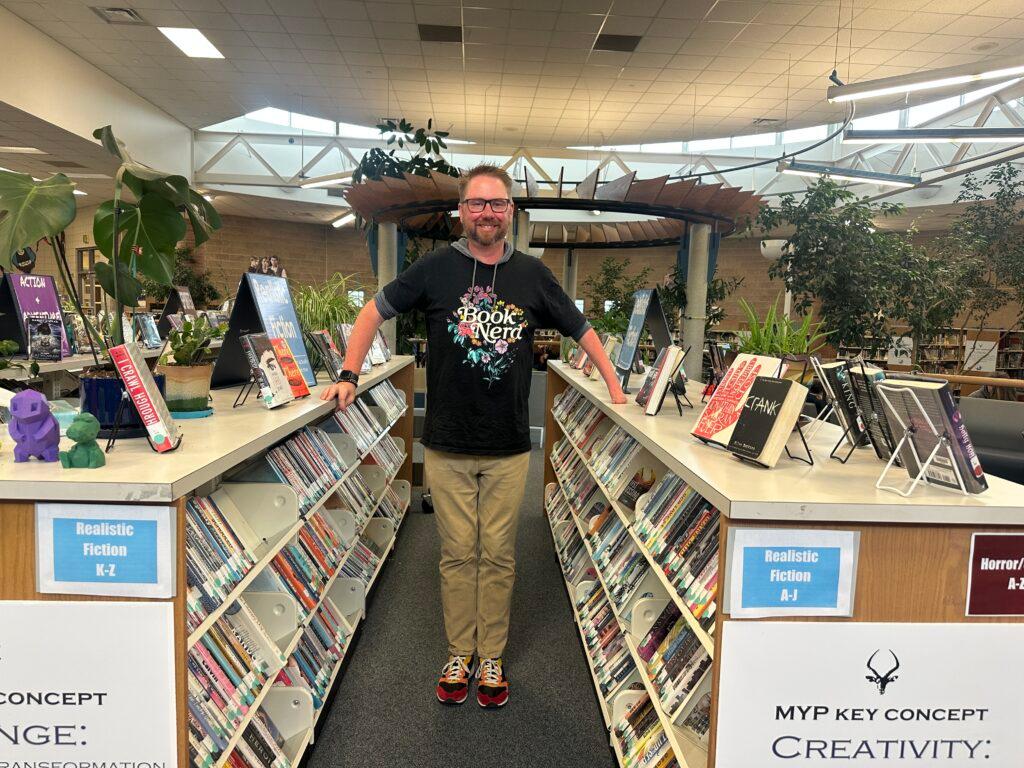
He said “absolutely” there are reluctant readers.
“But our goal is to get a book into the hands of everyone that they're going to love.”
Benson himself used to only read nonfiction and history. He said it was like climbing a mountain. He was proud of himself when he finished but “it was kind of painful the whole way.”
Then he read “The Hunger Games.”
“It changed my path in terms of what I wanted to do for the rest of my career within a school.”
Getting teens to read
For the reluctant readers, he looks for a “gateway” book, a book that will change the student’s perception of reading. He asks them about their interests, the kinds of movies they like, TV shows and what kinds of video games they like. He might throw in some reverse psychology like, well, “there's a little bit of cussing in it, so you probably can't handle it ... and they're like, ‘no, no, no, no. I'll give it a shot. I can handle it.’”
Benson said the hottest genre right now for teens is mystery novels.
“They love wondering and guessing what's going to happen or who the culprit was and what's happening there. The idea of a bunch of kids going somewhere and then a murder mystery unfolds is appealing to them right now.”
Benson’s biggest tip for encouraging reading in the children or teens in your life is to demonstrate a love of reading. Talk to them about what you are reading and let your passion shine through. When the freshmen classes come in for a library orientation — especially the boys — Benson tells them about a crazy action-adventure book he’s reading.
“If I can show passion about books and show that I love reading. I've noticed I see a spark out of kids saying, ‘Well, man, he really sold that. He is really into this.’ And ‘that story actually kind of sounds like something I'd maybe be interested in reading.’"
Will that be paper or plastic?
One other interesting tidbit. Benson has noticed kids like actual books. You know, like where you turn a page made out of paper? He’ll tell them he has an e-book version they can check out. But they say nope, they’ll wait until the actual book comes back.
“I think it is a little bit of an escape for kids,” he said. “There's a little bit of a movement towards less time on phones. Especially our juniors and seniors who are starting to see being off their phones during certain of the day is a good thing.”





